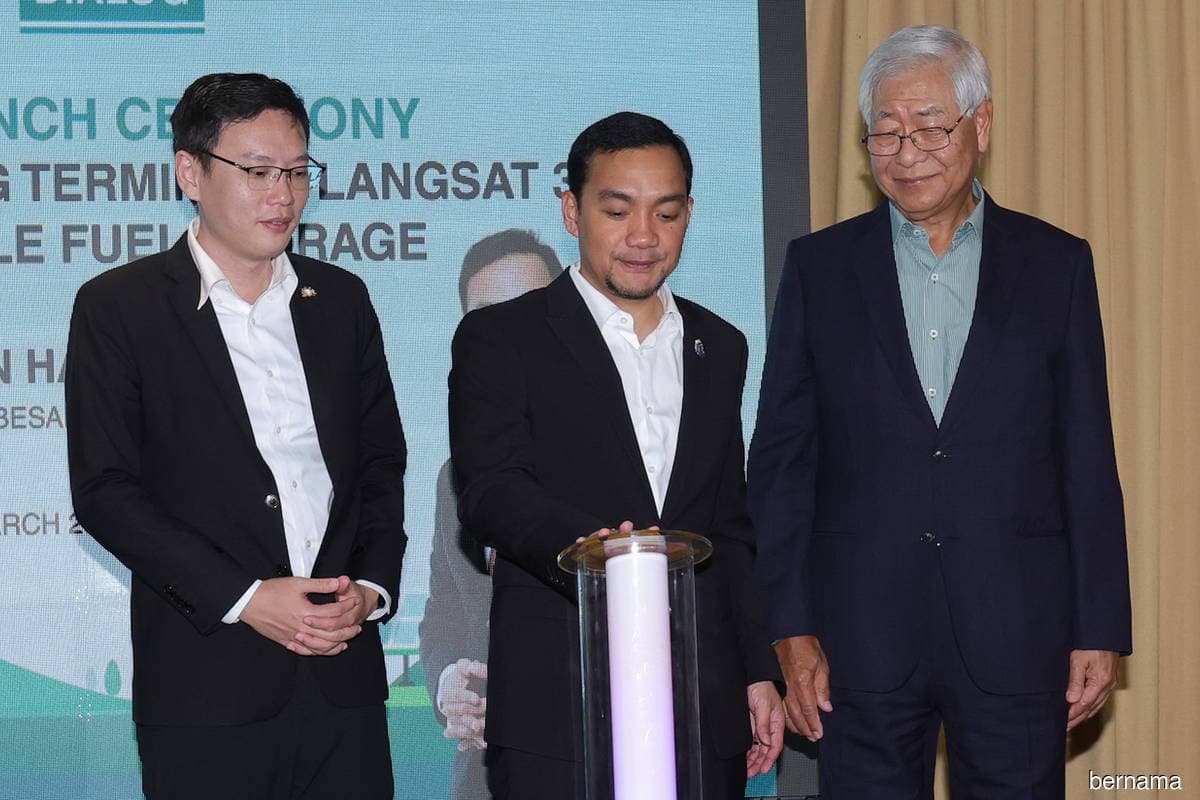
KUALA LUMPUR (March 16): Dialog Group Bhd on Thursday (March 16) launched Dialog Terminals Langsat 3, which marks the expansion of its terminal operations into storage facilities for renewable fuel products at the terminal in Tanjung Langsat, Johor.
According to a statement, the expansion is expected to commence operations by end-2024, and caters to growing investor interest in low-carbon fuel alternatives.
The terminal, situated between Terminal Langsat and Langsat 2, is operated by Dialog Terminals Langsat (3) Sdn Bhd, an indirect wholly owned subsidiary of the group.
It has a storage capacity of 205,000 cubic metres, and serves short- to medium-term energy traders and multinational companies storing energy products. It is also connected to truck-loading bays and existing marine facilities.
The expansion is in line with low-carbon economy transition under Dialog's Climate Change Strategy as part of the group's ongoing efforts to expand product and solution offerings to support growth and development in the sustainable and renewables sector.
“The storage facility will consist of storage tanks with a capacity of 24,000 cubic metres targeted for renewable fuel feedstock and products, which include used cooking oil, tallow, pyrolysis oil, palm oil mill effluent as well as biodiesel, which include used cooking oil methyl ester (Ucine) and fatty acid methyl ester (Fame),” said Dialog executive chairman Tan Sri Dr Ngau Boon Keat.
“This is just the first step in Dialog Terminals Langsat 3’s plan to create an ecosystem for renewable fuels, with potential plans in the future to include integration and collaboration with pre-treatment or hydrotreat plants, thereby creating synergy to blend renewable and conventional fuels.”
Johor Menteri Besar Datuk Onn Hafiz Ghazi said the terminal will support environmental initiatives of both the state and federal governments, and further support the environmental, social and governance (ESG) agenda.
Dialog closed five sen or 2.13% lower at RM2.30 a share on Thursday. Its market capitalisation stood at RM12.99 billion.
